Leadership and Legacy: Xi Jinping, Narendra Modi and Prithvi Narayan Shah
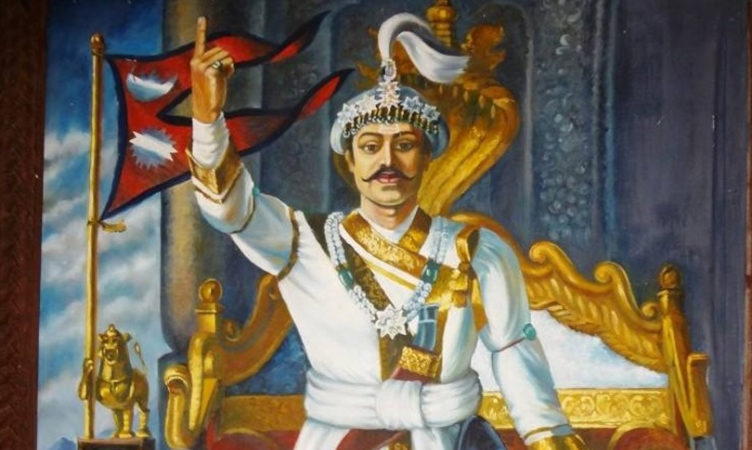
Throughout history, certain leaders have transcended the limitations of their respective eras, profoundly shaping the political and social landscapes of their nations. One such leader was King Prithvi Narayan Shah of 18th-century Nepal, whose visionary leadership and strategic foresight led to the unification of a fragmented region into the modern state of Nepal.
By comprehending the geopolitical landscape of his era, Shah created a unified kingdom out of a conglomeration of several principalities and kingdoms, each independent and sovereign in its own domain (Baral, 2020). His ability to navigate the geopolitical challenges of his time was instrumental in establishing the foundation of modern Nepal.
In more recent history, India’s Prime Minister Narendra Modi and China’s President Xi Jinping have similarly demonstrated transformative leadership, albeit in distinct political contexts. Modi's tenure has focused on modernizing India’s economy and strengthening its global stature, while Xi has concentrated on expanding China’s global influence and centralizing power within the Communist Party.
Despite the stark differences in the political systems and historical circumstances of these leaders, a common thread unites them; their ability to navigate complex national and international challenges with strategic foresight. Analyzing the leadership styles of Prithvi Narayan Shah, Narendra Modi, and Xi Jinping offers a compelling opportunity to explore the varying ways in which leaders consolidate political power, foster national unity, and advance the interests of their nations. This comparative examination not only enriches our understanding of leadership dynamics but also provides insights into the broader role of leadership in shaping the future trajectories of nations.
King Prithivi Narayan Shah, hailed as the founder of modern Nepal, is recognized for unifying the fragmented Himalayan kingdoms into a single nation-state. His reign was marked by significant internal and external challenges that threatened Nepal's political stability and territorial integrity. Prithvi Narayan Shah compared Nepal with "Yam between two boulders” and stressed that Nepal must maintain a policy of equilibrium between its immediate neighbors (Rana, 2023). This quote aptly captures the geopolitical vulnerability posed to Nepal by the British Empire in India and the Qing Dynasty in China. In response to external pressures, Prithivi Narayan Shah demonstrated exceptional military acumen and diplomatic skill. He astutely mobilized the people, directly involving them in his battles, thereby aligning political leadership, military power, and the will of the people.
Following Chanakya's principle that all policies lead to war, Prithvi Narayan Shah made warfare central to Gorkha’s strategy. Distinct to the wars of his period, he led the masses and classes or in other words he had actually led the “People’s War” and changed the character of war from “feudal skirmishes to a national war.” (Rana, 2021). In doing so, he successfully preserved Nepal’s sovereignty while unifying its diverse regions into a cohesive nation. His efforts were pivotal in establishing the nation's territorial integrity and sovereignty during a time of significant regional volatility. His efforts in statecraft, in contrast to contemporary leaders such as Narendra Modi of India and Xi Jinping of China, highlight the distinct nature of his legacy. While contemporary leaders like India’s Narendra Modi and China’s Xi Jinping have primarily focused on the governance and economic development of their respective nations, Prithvi Narayan Shah's legacy lies in the foundational task of unifying Nepal, navigating external threats, and establishing a strong national identity for Nepal.
Under Xi Jinping's leadership, China has experienced rapid economic growth, propelled by large-scale projects like the Belt and Road Initiative (BRI) and policies aimed at advancing industrial and technological development. While these initiatives have driven significant progress, they have also raised challenges, such as debt sustainability, environmental harm, and growing inequality.
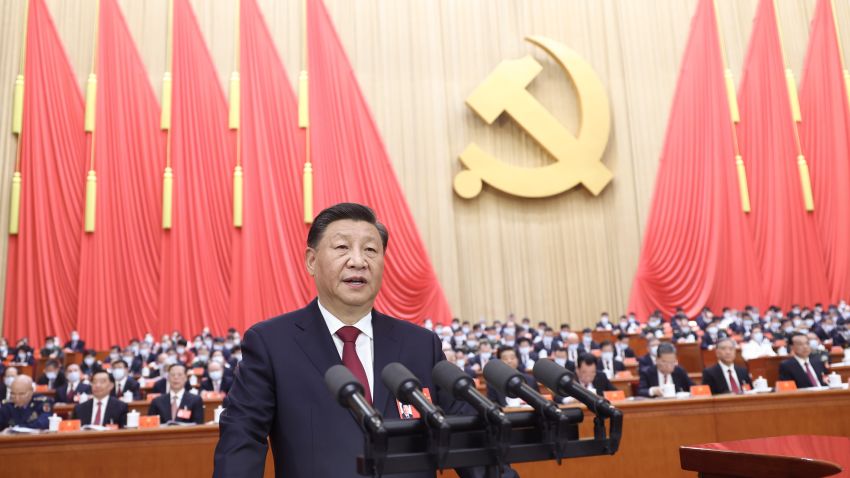
Some critics worry that China is creating a debt trap or engaging in predatory lending, with others viewing the BRI as a troubling expansion of Chinese power. There are concerns that China could eventually seize control of key assets for military purposes or leverage them in future negotiations (Nadia Clark, 2023). Furthermore, scholars mention that Xi’s centralized leadership has sparked concerns about the transparency and accountability of China’s economic policies, potentially threatening the long-term stability of the economy.
Similarly, Narendra Modi’s economic reforms, such as the Goods and Services Tax (GST) and the "Make in India" initiative, present considerable potential to transform India’s economy. Although Modi has prioritized infrastructure modernization and digitalization, his efforts have been met with criticism. Many views that as Modi’s star has grown brighter, a different connotation has gained prominence: a false promise or gross exaggeration (Nikhil Kumar 2021). Many of these promises remain ambiguous, often thwarted by regional disparities and a complex socio-political landscape.
King Prithivi Narayan Shah's reign brought significant reforms that laid the foundation for Nepal's long-term economic stability. His famous directive, "Forbid the use of clothes from India; show samples to those who know how to make clothes in our country," (L.F. Stiller S.J. 1968) reflects his emphasis on self-reliance and the growth of local industry. Recognizing that economic stability was essential for maintaining power, he encouraged the development of agriculture and trade. By training weavers to produce high-quality cloth, he ensured that the nation's wealth remained within its borders.
Prithivi Narayan Shah also promoted foreign trade, urging, “Send our goods and herbs to India and extract money. Continuously draw money and accumulate it.”His consolidation of political power and command to "Keep the mint pure" played a crucial role in standardizing currency and stabilizing Nepal's economy.
Additionally, his expansion of trade routes, as stated in his DibyaUpadesh—"Closing the roads of east and west, I will open the road through Nepal"—facilitated new trade opportunities and furthered economic growth. His focus on self-sufficiency, agricultural advancement, and infrastructure laid the groundwork for Nepal’s resilience against internal and external challenges. While his economic strategies were smaller in scale compared to modern global powers like China and India, they showcased remarkable foresight and pragmatism. His emphasis on internal stability, agricultural development, and trade set the stage for sustained economic growth and future prosperity.
Xi Jinping’s diplomatic strategy has become increasingly assertive and expansive. China's increasing power and influence in the international arena arouse increasing curiosity about the country's foreign policy (Zekeriyya Akdae, 2024.) Through initiatives like the Belt and Road Initiative (BRI), Xi aims to augment China’s global influence by directing significant investments into infrastructure development across various regions. This economic engagement is complemented by a firm stance in regional territorial disputes, particularly in the South China Sea and in relations with India, where his policies have contributed to heightened geopolitical tensions. Scholars view that China’s growing presence on the world stage is often seen as a challenge to the existing international order, fueling concerns over its potential hegemonic goals.
On the other hand, Modi’s diplomatic approach, shaped by his "Neighborhood First" and "Act East" policies, emphasizes India’s ambition to strengthen its influence both within South Asia and globally. India aims to expand its "Neighborhood First" policy to include Southeast and West Asian nations, thereby broadening its sphere of influence (Vaishali Jain and Somvir Gil, 2024).
Modi’s leadership has also reinforced strategic partnerships with countries like the United States, Japan, and Australia to counterbalance China’s growing power. However, his foreign policy is complicated by ongoing border disputes with China and Pakistan, which continue to impact India’s regional and global diplomatic relations. China has taken advantage of this situation by using Pakistan as a proxy to undermine India’s interests in the region. Following Pakistan's lead, several smaller neighboring countries have also sought closer ties with China to counterbalance India's regional dominance (Vaishali Jain and Somvir Gil, 2024).
In contrast to the assertive diplomacy of leaders like Xi and Modi, Prithvi Narayan Shah's approach was one of caution and non-alignment. During his unification campaign, he formed strategic alliances with neighboring powers, offering protection and incentives to strengthen his position. King Prithvi Narayan Shah sought support from influential regional entities, ensuring their backing in his efforts.
Going through historian Dilli Raman Regmi's accounts, amid the dominance of powerful empires like the British Empire and Qing China, his foreign policy emphasized strategic neutrality. His famous statements from the Dibya Upadesh— “Maintain a treaty of friendship with the emperor of China” and “Keep also a treaty of friendship with the emperor of the southern sea” (L.F. Stiller S.J., 1968)—reflect his diplomatic philosophy. Yet, he had instructed the nation to remain prepared by cautioning that “one day that force would come.” (Rana 2022).
These quotes illustrate his pragmatic strategy of steering clear of larger powers' conflicts while safeguarding Nepal's sovereignty. Unlike the expansionist tactics of contemporary leaders, Prithvi Narayan Shah’s diplomacy centered on preserving Nepal’s autonomy in a turbulent regional context. His adept handling of foreign relations ensured Nepal’s independence at a time when smaller states were vulnerable to absorption by more powerful neighbors. His policy of non-alignment, marked by calculated isolation and diplomacy, was crucial to Nepal's survival and sovereignty during a volatile era.
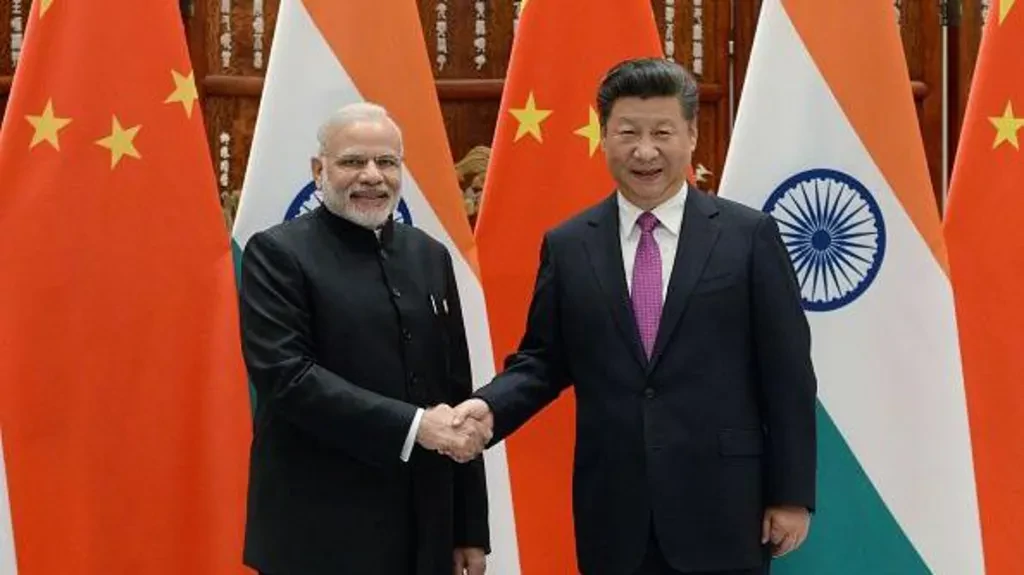
Xi Jinping's strategic approach has faced considerable criticism due to its expansionist goals and authoritarian inclinations. China’s aggressive stance in territorial conflicts, especially in the South China Sea, as well as its treatment of Hong Kong, have raised concerns about the long-term viability of its broader strategic aims. These actions reflect a desire for greater regional and global influence, but they also risk disenchanting other nations and destabilizing the international order. As China becomes increasingly prominent on the world stage, the challenges surrounding its foreign policy appear to be intensifying (Zekeriyya Akdae, 2024). Amid global economic struggles and the rise of unilateralism and protectionism, many nations are turning to China with optimism, hoping it will continue to serve as a driving force for global economic growth.
In contrast, Modi’s strategic vision for India focuses on the country’s ambition to become a dominant regional power with a strong global presence. His efforts to strengthen ties with democratic countries and counter China’s expanding influence reflect India’s determination to assert itself internationally. However, Modi's strategy is complicated by significant internal challenges.
China’s increasing influence undermines India’s policy of prioritizing its neighboring countries, despite India's ongoing efforts. In terms of India’s strategic interests, a more pragmatic approach is needed in its interactions with neighboring nations (Vaishali Jain and Somvir Gill, 2024). Modi also faces internal issues such as security threats, border disputes, and regional rivalries, all of which have tested his leadership and strategic capabilities.
King Prithvi Narayan Shah’s strategic approach was rooted in both military and political considerations, aimed at ensuring Nepal’s sovereignty in a geopolitically unstable region. His successful unification of Nepal was not just a military triumph but also a manifestation of his vision for long-term stability. His statement from Dibya Upadesh, "This common garden was made by all four castes and thirty-six greater and lesser classes; it is the garden for all” (L.F. Stiller S.J. 1968) underscores his ability to unite a diverse array of ethnic and cultural groups under a centralized system of governance, laying the foundation for a unified Nepal.
Through a combination of military campaigns and astute diplomacy, King Prithvi Narayan Shah expanded Nepal’s territorial reach while strengthening its national identity. His strategic foresight in ensuring Nepal's survival and prosperity, blending military and diplomatic efforts to safeguard its territorial integrity, remains one of his most enduring achievements.
Xi Jinping's governance is marked by a centralization of power and a strong focus on party discipline. According to Sangkuk Lee (2017), Xi swiftly consolidated political power after the 18th CCP National Congress in 2012, defying earlier expectations. He leveraged social demands for reform and political missteps by top elites to drive institutional changes that reinforced his control. Introducing reform ideas rooted in complex systems theory, Xi emphasized systemic thinking and top-down design to advance reforms. This approach allowed him to justify the centralization of power and establish central organizations to coordinate reforms, effectively diminishing the principle of division of labor. His authoritarian style and consolidation of authority have sparked concerns about the lack of political pluralism and the long-term sustainability of China's political system.
Narendra Modi's administration in India has prioritized transparency and governance reforms to modernize the bureaucracy and enhance service delivery. However, these efforts are hindered by entrenched corruption, bureaucratic inefficiency, and deep socio-economic inequalities. While extreme poverty has continued to decline since Modi assumed office, the country’s economy has struggled to generate sufficient job opportunities, particularly affecting the youth unemployment rate (John Reed and Andy Lin, 2024).
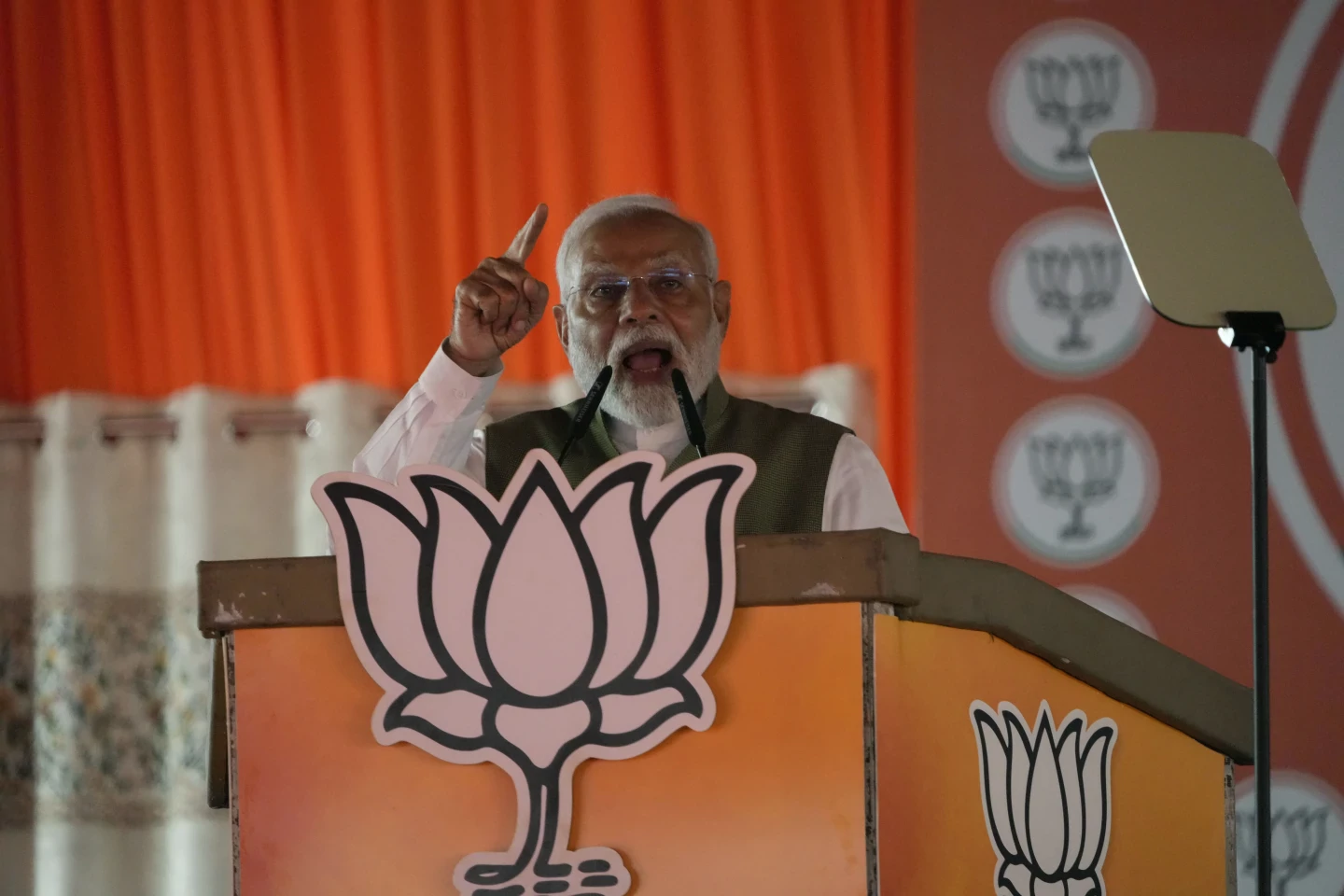
Additionally, religious persecution and Islamophobia have surged under his leadership, with many critics accusing Modi of implicitly supporting sectarianism to strengthen his Hindu-nationalist image (Rhea Moqul, 2024).
In contrast, history is the testimony that King Prithivi Narayan Shah's administrative reforms were pivotal in consolidating and stabilizing a unified Nepal. He introduced a formal taxation system and famously declared, "Let the king see that great justice is done. Let there be no injustice in our country," this highlights his commitment to equitable governance. His assertions such as "The king’s store is his people" and “Join the soldiers and the peasants and there will be no insurrection” underscored that Prithivi Narayan Shah was a king who believed that the divine power once handed by the Gods to the ancient kings, now, actually rested in the hand of the people (Rana 2021). Thus, his belief in serving the public remained as the cornerstone of effective leadership.
King Prithivi Narayan Shah's establishment of a centralized administrative system during a period fraught with state-building challenges was a remarkable achievement. His model of governance not only laid the foundation for Nepal’s stability but proves to be more effective in ensuring the nation’s long-term survival than the systems being employed by Xi and Modi.
King Prithvi Narayan Shah's leadership stands out for its foundational and visionary nature, particularly when compared to contemporary leaders like President Xi Jinping of China and Prime Minister Narendra Modi of India. While Xi and Modi lead powerful, well-established nations with robust economies and significant global influence, Prithvi Narayan Shah's ability to consolidate the fragmented political landscape, secure national sovereignty, and establish long-term stability goes beyond routine governance, positioning him as a leader whose achievements transcend the typical challenges faced by modern heads of state.
In contrast to the relative peace and stability enjoyed by China and India under the leadership of Xi and Modi, Prithvi Narayan Shah's leadership emerged in a turbulent era marked by political fragmentation and military rivalries. His military acumen, honed through direct combat experience, was crucial in safeguarding Nepal’s territorial integrity during a period of geopolitical uncertainty, marking his leadership as distinct from the mere administrative and diplomatic focus of modern leaders.
Additionally, Prithvi Narayan Shah's strategic brilliance is further underscored by his ability to navigate these challenges with limited resources and in the absence of today’s technological advancements. This highlights the exceptional nature of his achievements, as his leadership was not only effective but also remarkably adaptive to the circumstances of his time.
A closer examination of Prithvi Narayan Shah reveals that the strategies employed by both Xi Jinping and Narendra Modi are essentially large-scale adaptations of his fragmented approaches to Nepal’s internal and external affairs, a perspective that is further supported by his Dibya Upadesh.
Lastly, Prithvi Narayan Shah's territorial expansion, which transformed the modest 12,000 households of Gorkha (L.F. Stiller S.J. 1968) into the unified nation of Nepal, represents an unparalleled feat in the history of South Asian. When assessed against the vast territories of neighboring China and India, whose boundaries would require extensive military endeavors to replicate his consolidation, Prithvi Narayan Shah's legacy becomes even more extraordinary.
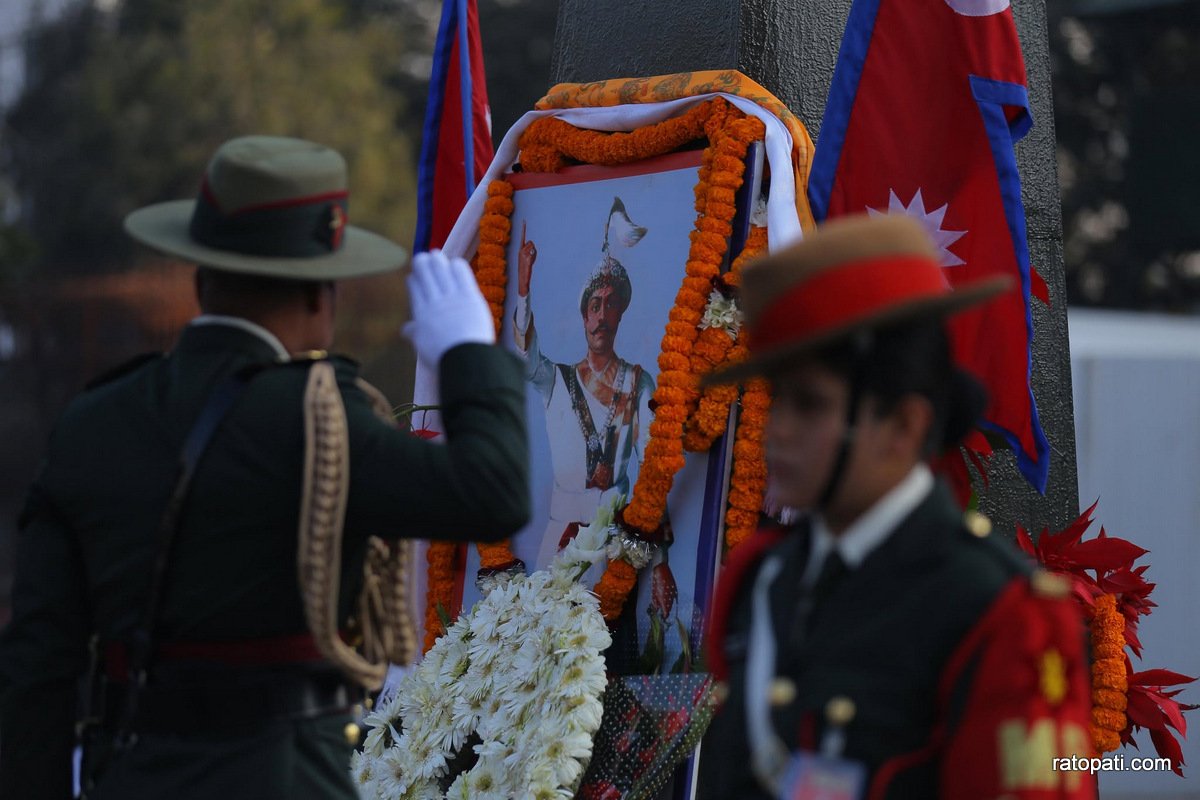
His unification of Nepal transcended mere territorial gains; it established the foundational framework for the nation’s identity, shaping its future trajectory. His influence on Nepali culture is deeply embedded, and he continues to be venerated as a symbol of national unity, resilience, and sovereignty.
In contrast, contemporary leaders like Xi Jinping of China and Narendra Modi of India face internal challenges and criticisms, with their legacies still open to the judgments of time. In this light, Prithvi Narayan Shah's legacy as a nation-builder remains firmly entrenched in Nepal’s collective memory. His leadership not only resolved immediate governance issues but also laid the groundwork for Nepal’s enduring national unity, ensuring his position as a historically significant figure whose impact transcends the scope of his era.
(The author, a retired major, served in the Nepal Army before retiring from active duty.)
Disclaimer: The views expressed in this article are the author’s own and do not necessarily reflect Ratopati’s editorial stance.



Leave Comment